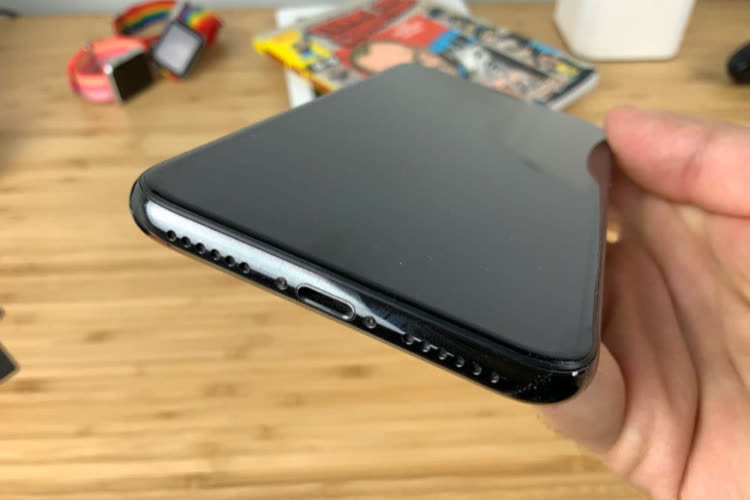
iPhone with USB-C port: was Apple’s first move made reluctantly?
There are transitions in which Apple shows a certain courage. The alleged absence of a jack port on the iPhone sparked months of controversy before the release of the iPhone 7. So, a petition has gathered more than 240,000 signatures to push Apple to reverse this decision.
iPhone 7: Put an end to the plug once and for all
A decision that would prove to be a great one with the marketing of the AirPods a few months later from a business point of view. iPhone 15 will begin a new transition, moving from Lightning to USB-C. A person who has been out of a coma for several years may believe that this decision follows a certain logic. Apple has been a pioneer in democratizing USB-C, and played an important role in its design. Macs and most iPads have adopted it. In short, the iPhone exists, that’s the meaning of the story and the rumors. Some of them promised this move for 2019.
Yes but This transformation is dictated by the European Union, as everyone knowsThis is something that Apple will be careful not to say, according to Mark GormanDuring his keynote address on September 12. It should instead applaud this “courageous decision.” Using the same cable, users will be able to charge their Mac as well as their iPad or iPhone. The move to USB-C will provide much faster transfer rates on high-end models. Gorman also suggests that this functionality will be reserved for models in the Pro range. Remember, this is already the case on the iPad 10.
There’s another feature that doesn’t get mentioned often: The iPhone should finally have a video output worthy of the name. Apple docks can also charge faster. Finally, it will greatly simplify the lives of consumers using Android smartphones.
On paper, this shift should in theory be received favorably by consumers. However, at Apple, we fear a backlash, especially from early buyers who will see overnight that their numerous adapters and cables no longer work with their brand-new peripherals. For some, the move to the iPhone 15 could be particularly steep in terms of pricing.
These adapters and cables that won’t be used for anything are exactly what made Apple’s CFO happy. MFi (Made For iPhone) certification has made Apple fortune for years. Rumors suggest that to take full advantage of the iPhone 15’s USB-C, an MFI chipset is required. Apple will undoubtedly seek to limit the damage one way or another, but technically, Apple’s room for maneuver is limited. The European Commission has already indicated that it is following the matter closely.
USB-C limited by MFi chipset for future iPhone 15s?
At Apple, we were prepared for all arguments to avoid this shift, even the most surprising, the green one. This forced shift explained that Apple, in a 2020 press release, created an “unprecedented” volume of electronic waste while significantly disrupting users.
Apple is putting its two cents into the European debate over the universal charger
Other arguments from Apple were more plausible, such as the fact that legislators determining technological choices could hurt innovation. Two years later, Greg Joswiak, head of marketing, politely chimed in Makes it understandable He prefers that governments give directives rather than impose them by law.
But in the end, the person who still settles the debate best is a former Apple employee. Tony Fadell, the “father” of the iPod, who also contributed greatly to the creation of the iPhone, thundered on social media that “ Our planet is more important than the damned Mosul “. I add that if this law sees the light, it will be ” Just because Apple didn’t do the right thing, period “.

“Incurable web evangelist. Hipster-friendly gamer. Award-winning entrepreneur. Falls down a lot.”
